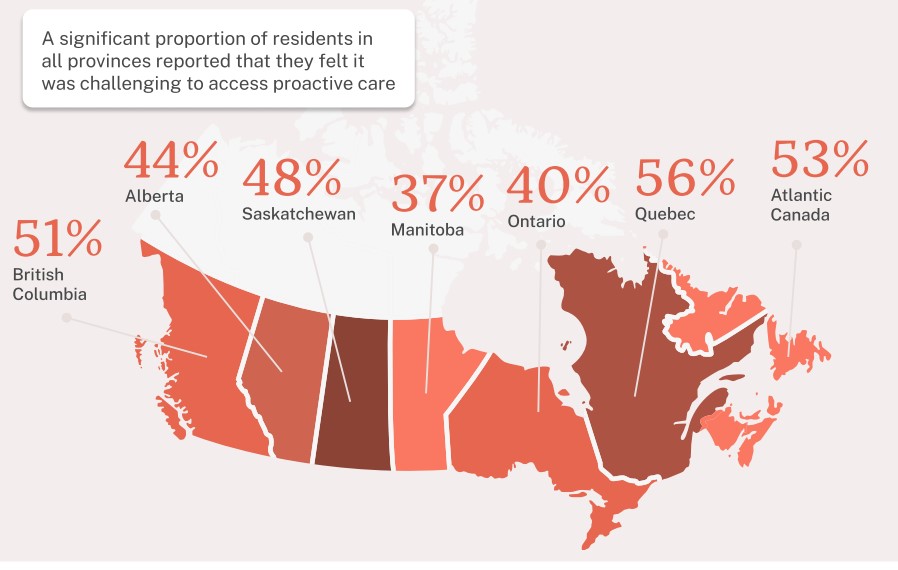
Eight in 10 cite barriers to proactive care

Many Canadians are choosing to soldier on rather than seek help in times their health may be at risk, according to a report.
Overall, 50% of Canadians delay seeking medical advice even when faced with health concerns.
And many (29%) believe their health issue isn’t serious enough to visit a doctor, reports Maple, a virtual healthcare platform provider
Most Canadians (72%) have tried to improve their health or fitness by taking their health into their own hands, according to a previous Blue Cross report.
In addition, 81% of Canadians say they face barriers to proactive care, according to Maple’s survey of 1,510 Canadians, conducted Aug. 7 to 9, 2024.

Source: Maple
This is the case even though far more Canadians wish to see a primary care provider more often, ranging from 70% of Canadians in Saskatchewan to 81% in Quebec.
“Proactive care is essential for improving health outcomes and easing the burden on our overstretched healthcare system, yet most Canadians still face significant barriers to accessing it,” says Brett Belchetz, CEO and co-founder of Maple.
“Primary care providers are working harder than ever, with many facing burnout just trying to meet the demands of reactive care, leaving little capacity to focus on proactive care. Without access to early intervention, more serious conditions develop, putting even greater strain on both patients and the system. Technology has the potential to bridge these gaps, allowing us to prioritize proactive care, reduce strain on the system, and empower Canadians to take control of their health.”
At least 35 percent of all deaths of those under 75 were potentially avoidable through proactive care efforts like lifestyle changes and vaccinations, effective screening or early detection and ongoing treatment of conditions, Maple notes, citing data from Statistics Canada (StatCan).
“With one in five Canadian adults – 6.5 million – lacking access to a family doctor, many Canadians wait for a minor health issue to become severe before getting medical help, leading to significant personal and systemic costs,” says Maple.
Canadian HR professionals view rising health and benefits costs as their greatest people risks, according to a previous report.